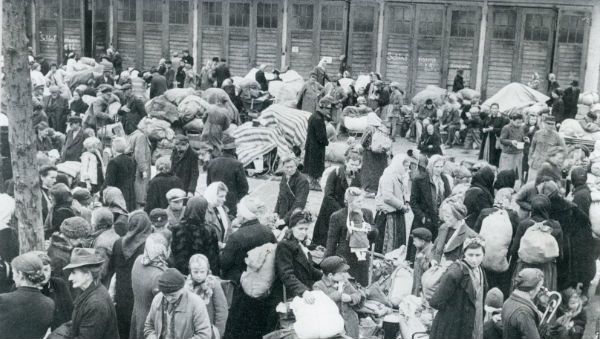Post-Bruxelles Europe
While the Soviet phase of the Third Weltkrieg still raged in Scandinavia and central Asia, western and central Europe were now at peace after what French propaganda was calling the Fourth Franco-Prussian War and the signing of the Treaty of Bruxelles.
This was a time in Europe characterised by reconstruction and massive population movements.
Austria was perhaps the biggest single winner of the war. The Austrian Empire had been expanded greatly while the lands of the empire had remained untouched and a previously declining industry had been revitalised by the wartime boost in demand. Austria was strong, confident and already looking forward to a potential future where the autonomous nations of the empire could be unified into a single state.
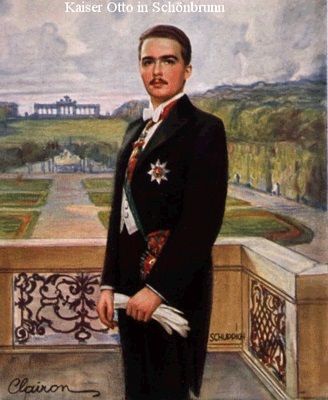
Emperor Otto of Austria emerged from the war having gained the royal crowns of Saxony, Wurttemberg and Bavaria, and the ducal crowns of Hesse and Baden.
Italy, Spain, England, Poland and other European nations which had not seen the war come to their soil had similarly come through relatively unscathed.
France, meanwhile, had gained the most on paper, but in practice had now been twice devastated by war in a generation and the same could be said for Flanders, Wallonia, the Rhineland and the rest of its puppet states in central Europe. It also faced potentially restless subjects in many places as well as a vast African empire to maintain control over.
And in former Germany matters were even worse. Refugees abounded, industry had been reduced to ruins and famine and disease stalked the land.
For food, much of Europe was forced to turn to food imported from the United States of America, stimulating a post-civil war economic recovery for America in the process. However, since all food imports had to come through the channel ports, it was France which was able to control the flow of food, ensuring that its own citizens and favoured puppets benefited first. The rest of central and western Europe, especially Prussia, was forced to rely on famine relief by the International Red Cross (which imported food via the Netherlands) and Poland.
Access to food imports, the spoils of war and the forced labour of hundreds of thousands of German POWs meant that French reconstruction was already complete by the time of the Treaty of Bruxelles. Any remaining political resistance from syndicalism in France itself had been crushed by the carefully stoked flames of national pride and dissenters were now easily dealt with through imprisonment, execution or deportation to French Africa.
But in Luxembourg, Alsace-Lorraine and the Sarre Basin (as the French called it) it faced the problems of large numbers of Germans in what was nominally French territory. It therefore embarked upon a massive programme of Francisation in these regions. Street and town names were changed. French became the only language of education, government and the media. And, crucially, anyone who could not speak, or refused to speak, fluent French was denied citizenship and offered a hefty resettlement grant if they agreed to emigrate to Croatia (where Austria was hoping to create a German ethnic majority through settlement). A few years later tens of thousands of Germans would be expelled from the regions altogether.
A lesser policy of Francisation was indirectly imposed in the Rhenish Protectorate, especially on the west bank of the Rhine. A customs union with France, the arrival of French companies, French media influence and the introduction of the Rhenish Franc, which was pegged at parity to the French Franc, were all designed to bind it economically with France while the French language friendly elements of the Rhenish constitution had the aim of gradually creating a French speaking population who could ultimately be absorbed into France. Once again, a programme of resettlement grants was introduced - though in this case it was presented as advertisements to emigrate to Africa where generous settlement grants and free land awaited (the French government took the view that, regardless of their origins, the white population in Africa would always unite with each other in the face of the large black majority).
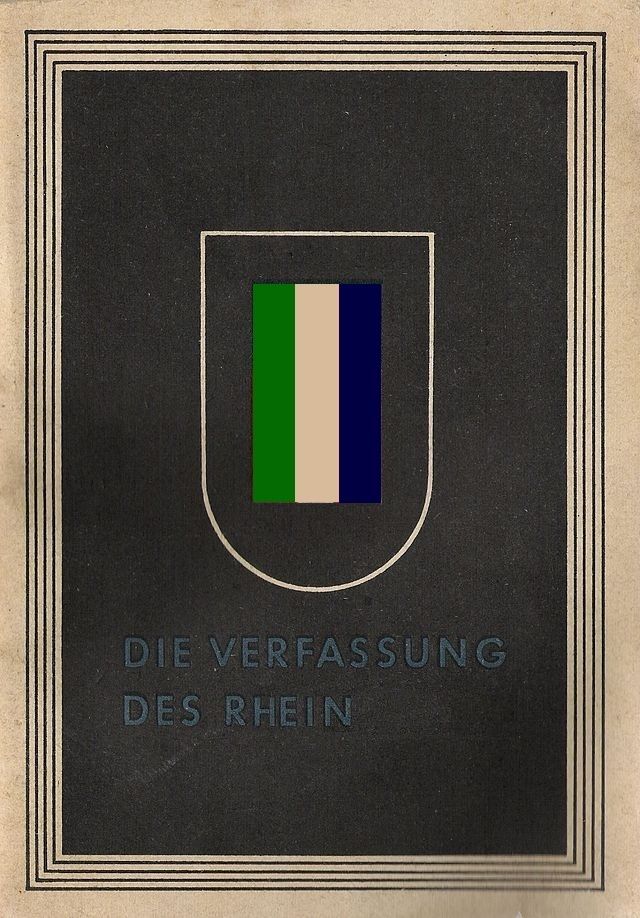
The cover page of the German language version of the 1955 constitution of the Protectorat de Rhin/Rheinprotektorat which put executive power in the hands of a Directoire/Direktor elected by a French appointed council of notables.
But the French weren’t the only ones promoting resettlement programmes. The USA was appealing for immigrants, especially skilled labourers, doctors, scientists and engineers, to help fuel its economic recovery, Austria was offering payments to any German family who wished to settle in Croatia or Bohemia and even Denmark-Holstein was able to offer small amounts of financial assistance to any Norwegians, Swedes or Finns who wished to flee the war between Canada and the Soviets.
Additionally an accord between Austria and France meant that as surviving German POWs were released they would be offered the choice of their backpay in devalued Marks and being repatriated to Prussia or, alternatively, substantial cash sums in Francs or Schillings if they chose to emigrate to the Austrian Empire or Africa instead.
Given that Prussia was swamped with refugees (most of whom were forbidden to return home to other parts of Germany by the victors of the war), wracked by famine and suffering the economic malaise of hyperinflation to such an extent that the zloty was being illegally used as the de facto currency, very few POWs were willing to choose it and many opted for Austria and Africa instead, usually bringing their families with them. Indeed, aside from Polish funded projects in Berlin and Koenigsberg which focused mainly on housing with very little industrial reconstruction, very little effective reconstruction would take place in Prussia until the beginning of the sixties and economic instability and housing shortages would continue into the seventies.
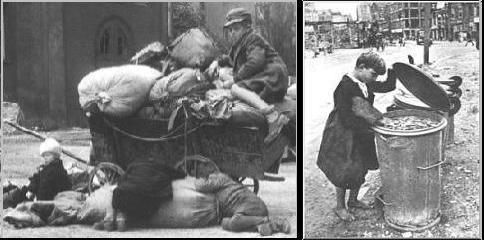
So-called ‘wolfskinder’ war orphans were a common site in the streets and countryside of Prussia. With the Prussian state unable to afford to help them most were forced into scavenging, drudgery and stealing to survive. The luckiest found themselves adopted or reunited with family members but many thousands starved to death or worse in this period.
All of this had a profound effect on the demographics of Europe. In Prussia refugees significantly increased the population but infant mortality would remain incredibly high for a decade while in the rest of Germany the absence of war refugees and increased rates of immigration to Africa, America and Austria led to a significant population drop. Only Denmark-Holstein would see a population increase thanks to the Soviet War and these refugees and immigrants would be what solidified the Nordic majority in the new state.
Further south in the Balkans a new order had emerged as Bulgarian victory over the Belgrade Pact had ended Serbian and Romanian revanchism and reducing the defeated to the status of quasi-states under Bulgarian hegemony. Faced with the threat of the ‘Red Menace’ to the east, Bulgaria and its satellites were now drawing closer to Hungary for mutual economic benefit and military security.
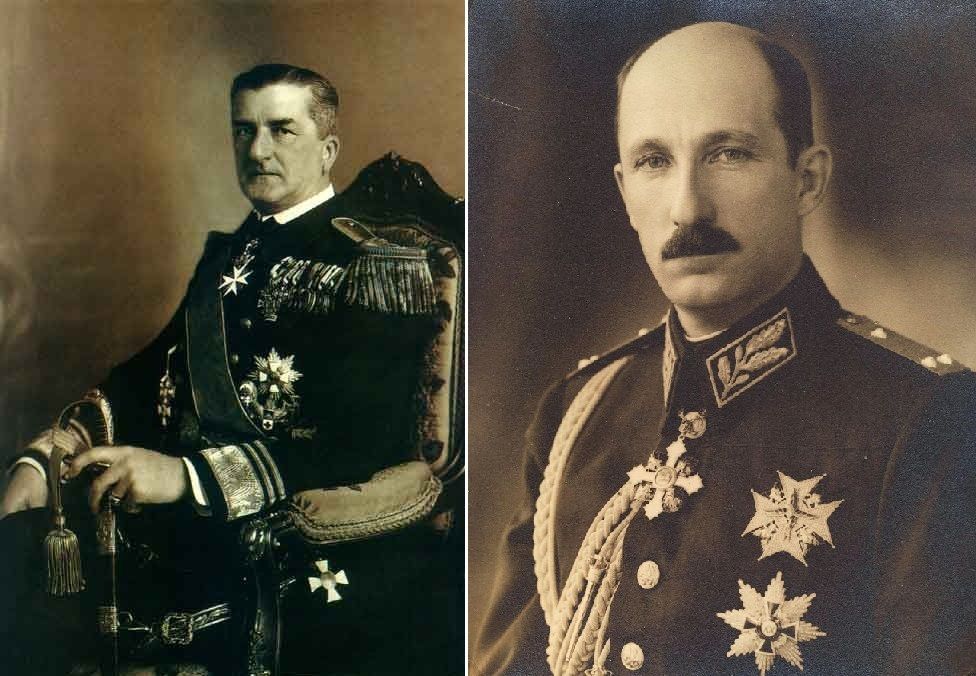
Left: Regent of Hungary, Admiral Miklós Horthy. Right: Tsar Boris III of Bulgaria. The two men would come to develop a strong working relationship in the face of the Soviet threat.
The long term consequences of this period had a profound impact on Europe which lingers to this day. From the Greater Austrian Federation to pan-Germanic terrorism to the Constanta Pact, many key features of the face of Europe today can trace their foundations to the post-Bruxelles era.
While the Soviet phase of the Third Weltkrieg still raged in Scandinavia and central Asia, western and central Europe were now at peace after what French propaganda was calling the Fourth Franco-Prussian War and the signing of the Treaty of Bruxelles.
This was a time in Europe characterised by reconstruction and massive population movements.
Austria was perhaps the biggest single winner of the war. The Austrian Empire had been expanded greatly while the lands of the empire had remained untouched and a previously declining industry had been revitalised by the wartime boost in demand. Austria was strong, confident and already looking forward to a potential future where the autonomous nations of the empire could be unified into a single state.

Emperor Otto of Austria emerged from the war having gained the royal crowns of Saxony, Wurttemberg and Bavaria, and the ducal crowns of Hesse and Baden.
Italy, Spain, England, Poland and other European nations which had not seen the war come to their soil had similarly come through relatively unscathed.
France, meanwhile, had gained the most on paper, but in practice had now been twice devastated by war in a generation and the same could be said for Flanders, Wallonia, the Rhineland and the rest of its puppet states in central Europe. It also faced potentially restless subjects in many places as well as a vast African empire to maintain control over.
And in former Germany matters were even worse. Refugees abounded, industry had been reduced to ruins and famine and disease stalked the land.
For food, much of Europe was forced to turn to food imported from the United States of America, stimulating a post-civil war economic recovery for America in the process. However, since all food imports had to come through the channel ports, it was France which was able to control the flow of food, ensuring that its own citizens and favoured puppets benefited first. The rest of central and western Europe, especially Prussia, was forced to rely on famine relief by the International Red Cross (which imported food via the Netherlands) and Poland.
Access to food imports, the spoils of war and the forced labour of hundreds of thousands of German POWs meant that French reconstruction was already complete by the time of the Treaty of Bruxelles. Any remaining political resistance from syndicalism in France itself had been crushed by the carefully stoked flames of national pride and dissenters were now easily dealt with through imprisonment, execution or deportation to French Africa.
But in Luxembourg, Alsace-Lorraine and the Sarre Basin (as the French called it) it faced the problems of large numbers of Germans in what was nominally French territory. It therefore embarked upon a massive programme of Francisation in these regions. Street and town names were changed. French became the only language of education, government and the media. And, crucially, anyone who could not speak, or refused to speak, fluent French was denied citizenship and offered a hefty resettlement grant if they agreed to emigrate to Croatia (where Austria was hoping to create a German ethnic majority through settlement). A few years later tens of thousands of Germans would be expelled from the regions altogether.
A lesser policy of Francisation was indirectly imposed in the Rhenish Protectorate, especially on the west bank of the Rhine. A customs union with France, the arrival of French companies, French media influence and the introduction of the Rhenish Franc, which was pegged at parity to the French Franc, were all designed to bind it economically with France while the French language friendly elements of the Rhenish constitution had the aim of gradually creating a French speaking population who could ultimately be absorbed into France. Once again, a programme of resettlement grants was introduced - though in this case it was presented as advertisements to emigrate to Africa where generous settlement grants and free land awaited (the French government took the view that, regardless of their origins, the white population in Africa would always unite with each other in the face of the large black majority).

The cover page of the German language version of the 1955 constitution of the Protectorat de Rhin/Rheinprotektorat which put executive power in the hands of a Directoire/Direktor elected by a French appointed council of notables.
But the French weren’t the only ones promoting resettlement programmes. The USA was appealing for immigrants, especially skilled labourers, doctors, scientists and engineers, to help fuel its economic recovery, Austria was offering payments to any German family who wished to settle in Croatia or Bohemia and even Denmark-Holstein was able to offer small amounts of financial assistance to any Norwegians, Swedes or Finns who wished to flee the war between Canada and the Soviets.
Additionally an accord between Austria and France meant that as surviving German POWs were released they would be offered the choice of their backpay in devalued Marks and being repatriated to Prussia or, alternatively, substantial cash sums in Francs or Schillings if they chose to emigrate to the Austrian Empire or Africa instead.
Given that Prussia was swamped with refugees (most of whom were forbidden to return home to other parts of Germany by the victors of the war), wracked by famine and suffering the economic malaise of hyperinflation to such an extent that the zloty was being illegally used as the de facto currency, very few POWs were willing to choose it and many opted for Austria and Africa instead, usually bringing their families with them. Indeed, aside from Polish funded projects in Berlin and Koenigsberg which focused mainly on housing with very little industrial reconstruction, very little effective reconstruction would take place in Prussia until the beginning of the sixties and economic instability and housing shortages would continue into the seventies.

So-called ‘wolfskinder’ war orphans were a common site in the streets and countryside of Prussia. With the Prussian state unable to afford to help them most were forced into scavenging, drudgery and stealing to survive. The luckiest found themselves adopted or reunited with family members but many thousands starved to death or worse in this period.
All of this had a profound effect on the demographics of Europe. In Prussia refugees significantly increased the population but infant mortality would remain incredibly high for a decade while in the rest of Germany the absence of war refugees and increased rates of immigration to Africa, America and Austria led to a significant population drop. Only Denmark-Holstein would see a population increase thanks to the Soviet War and these refugees and immigrants would be what solidified the Nordic majority in the new state.
Further south in the Balkans a new order had emerged as Bulgarian victory over the Belgrade Pact had ended Serbian and Romanian revanchism and reducing the defeated to the status of quasi-states under Bulgarian hegemony. Faced with the threat of the ‘Red Menace’ to the east, Bulgaria and its satellites were now drawing closer to Hungary for mutual economic benefit and military security.

Left: Regent of Hungary, Admiral Miklós Horthy. Right: Tsar Boris III of Bulgaria. The two men would come to develop a strong working relationship in the face of the Soviet threat.
The long term consequences of this period had a profound impact on Europe which lingers to this day. From the Greater Austrian Federation to pan-Germanic terrorism to the Constanta Pact, many key features of the face of Europe today can trace their foundations to the post-Bruxelles era.
Last edited:


